7 Essential Questions to Ask Before Buying a Business
Buying a business is a significant investment that requires careful consideration. To make an informed decision and reduce risks, you need to ask the right questions. Below are seven essential questions every buyer should ask before finalizing any deal. These will help you understand the business’s true value along with potential risks.
1. What Are the Biggest Challenges the Business Is Facing?
Understanding the current challenges the business is facing is vital. Whether it’s cash flow problems or potential competition out there in the market, knowing these challenges allows you to assess the level of effort that will be required. It can also give you insight into potential opportunities for improvement and growth after the acquisition.
2. How Did You Arrive at the Asking Price?
It’s a good idea to understand how the seller determined their asking price. Was it based on straightforward financial metrics like revenue and assets? Or was there some other rationale? You need to figure out if the asking price is fair, and you’ll certainly want to know if there’s room for negotiation.
3. Are There Any Legal Issues or Pending Lawsuits?
Lawsuits or legal disputes can have a significant impact on the business’s value and your future responsibilities. Ask if there are any ongoing or potential legal issues, such as lawsuits, intellectual property concerns, or other legal challenges. This will help you avoid future complications and unexpected costs that could arise post-sale.
4. How Well Are the Business’s Financials Documented?
A business’s financial health is the cornerstone of any successful transaction. Ask how the seller documents the business’s financials. Are the records clear and organized? Request to see tax returns, profit and loss statements, and balance sheets for at least the last three years. Well-documented financials ensure transparency and will help you make an informed decision.
5. What Skills or Expertise Are Required to Run the Business?
Every business requires a unique skill set to operate effectively. Before moving forward, consider whether you have the skills, experience, and knowledge to run the business. If not, are you prepared to hire or train someone who can fill that gap? Understanding the skill requirements will help you assess whether the business is a good fit for you.
6. How Dependent Is the Business on Key Customers or Vendors?
A business that relies heavily on a small number of customers or vendors can be risky. Losing one or more key clients or suppliers could significantly impact the bottom line. Ask about the business’s customer base. If a few clients account for a large percentage of revenue, it’s essential to evaluate the risk of losing those relationships.
7. What Will Happen to the Employees After the Sale?
Employees are often a key asset in a business. Before buying, ask what will happen to the employees after the sale. Will they stay on? If so, will their roles, salaries, and benefits remain the same? Understanding the status of the staff is critical for a smooth transition.
Asking these seven essential questions will help you uncover critical details about the business you’re considering purchasing. The more information you gather, the better prepared you’ll be to make an informed decision, minimize risks, and ensure that your new acquisition is a sound investment. This process will help you avoid headaches down the road.
Copyright: Business Brokerage Press, Inc.
The post 7 Essential Questions to Ask Before Buying a Business appeared first on Deal Studio.

How to Set Remote Teams Up for Success
As remote work continues to evolve, businesses must adapt to this new way of working. What was once a temporary solution during the global pandemic has now become a permanent part of the modern workforce. While the flexibility of remote work offers numerous benefits, it also presents challenges. This can be particularly true when it comes to maintaining accountability.
Let’s take a look at how businesses can set their remote teams up for success, ensuring productivity and collaboration.
Start with Clear Priorities
A common mistake when shifting to remote work is expecting immediate high productivity. While remote teams can be incredibly efficient, the transition needs to be handled with care. Instead of demanding an overwhelming output right away, businesses should prioritize tasks.
Just like workers who come to the office, remote staff members also experience the pressures of modern life. Whether it’s balancing family life or managing stress, it’s important to give employees space to adjust. Clear priorities and realistic goals will go a long way toward ensuring that remote workers remain focused and motivated.
Shift Your Mindset
One misconception that many businesses still hold is that remote work is a temporary fix. At this point in time, it is clear that this mindset is no longer accurate. Remote work is now an integral part of many businesses and is likely to stay in some capacity for the foreseeable future.
With the potential for future global disruptions, remote work should likely be a permanent part of your workforce strategy. Teams that are well-versed in remote collaboration will be ready for challenges and better equipped to handle whatever the future may bring.
The Right Tools Matter
A major barrier to effective remote work is access to the right tools. While businesses should already have approved software for collaboration and communication, it’s also important to remain open to new tools and technologies that may come along that can improve productivity.
The pace of innovation in software and collaboration tools is rapid. There are more options than ever, and that means that sticking to outdated or restrictive tools can hold teams back. If a new app or platform could streamline communication or boost productivity, don’t hesitate to adopt it.
Focus on Results, Not Hours
Traditional work hours often revolve around fixed schedules and often high degrees of micromanagement. However, remote work demands a shift in mindset. Instead of focusing on when your employees are working, concentrate on the results they produce. Trust your team to manage their time wisely and focus on the work that needs to be done.
Daily check-ins or regular team meetings are essential for maintaining alignment and communication. However, the focus should be on outcomes rather than micromanaging employees’ time. This will lead to a happier and more satisfied workforce.
Copyright: Business Brokerage Press, Inc.
The post How to Set Remote Teams Up for Success appeared first on Deal Studio.


